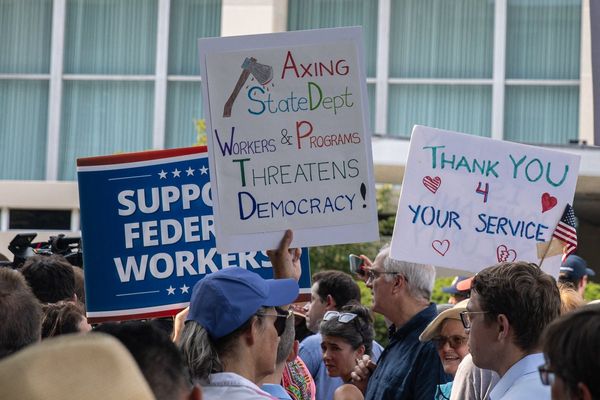
The Victorian Greens will reintroduce a bill to raise the age of criminal responsibility from 10 to 14 at the first sitting of the state’s new parliament on Tuesday, as the party seeks to capitalise on its increased influence to pursue justice reform.
With four MPs in the upper house, up from one in the last parliament, the Greens are the biggest presence on a largely progressive crossbench. And with the opposition also flagging an interest in criminal justice reform, the Greens leader, Samantha Ratnam, is optimistic of achieving change.
“If any parliament can get on with this reform, it’s this parliament,” she said.
As well as raising the age of criminal responsibility, the Greens bill would ban the use of solitary confinement on children held in youth detention.
Ratnam introduced the same bill to the upper house in 2021 but it lapsed before the November state election. At the poll Labor lost three upper house seats, bringing its tally to 15, meaning it will need to win over at least six of the 11 crossbench MPs to pass legislation.
Victoria’s premier, Daniel Andrews, has repeatedly indicated he favours a national approach regarding the age of criminal responsibility.
But Ratnam said years of delays showed Victoria could no longer rely on the national process and urged Andrews to lead the way on reform.
Federal, state and territory attorneys general met this month and agreed to release a 2020 draft report that recommended raising the age to 14, without exception. All states and the commonwealth, however, have agreed to develop a proposal to raise the age to 12.
But some jurisdictions are going it alone: in the Northern Territory, the age of criminal responsibility will increase to 12 from 2023, while in the ACT it will increase to 14 in 2027.
The Tasmanian government plans on increasing the minimum age of those in youth detention to 14, while keeping the age of criminal responsibility at 10.
Ratnam said some states were using the national discussions as a way of delaying taking action. “We’ve known for months now that that process has fallen down, we’ve got the ACT moving to 14, the Northern Territory to 12,” she said. “I don’t think you can argue there’s going to be a national approach.”
Ratnam also welcomed the opposition’s appointment on Sunday of the Liberal MP Brad Battin to a newly created shadow cabinet position that will focus on reforming the state’s criminal justice system.
Battin on Sunday said he wanted to “identify opportunities to prevent young people entering the rotating door of jail and work to determine how we can best deliver early intervention to prevent crimes from occurring”.
“These reforms will focus on prevention and working with the health sector to establish ways to work with people living with a mental health issue so we can treat them, not jail them,” he said.
The former police officer has also called for the age of criminal responsibility to be lifted from 10 to 14.
Asked about the Greens’ bill on Tuesday, the opposition leader, John Pesutto, said the Coalition would tackle criminal justice reform but added it was vital not to diminish “the ethic of responsibility.”
“This is a complex and we can think more can be done to keep young people out of custodial settings,” he said.
“We will look at every angle.”
Andrews also reiterated his support for a nationally consistent process.
“I don’t think we’ve exhausted that process. There’s still hope that with Mark Dreyfus chairing that council of attorneys general there is some prospect of a national approach,” he said.
Much of Tuesday’s parliamentary sitting will be ceremonial, with a welcome to country and smoking ceremony in the morning before the swearing-in of MPs, the election of presiding officers and a speech by the governor, which is written by the government and outlines their plan for the new term.
Question time will also occur in both houses and some legislation introduced before parliament will return in earnest in early February.







